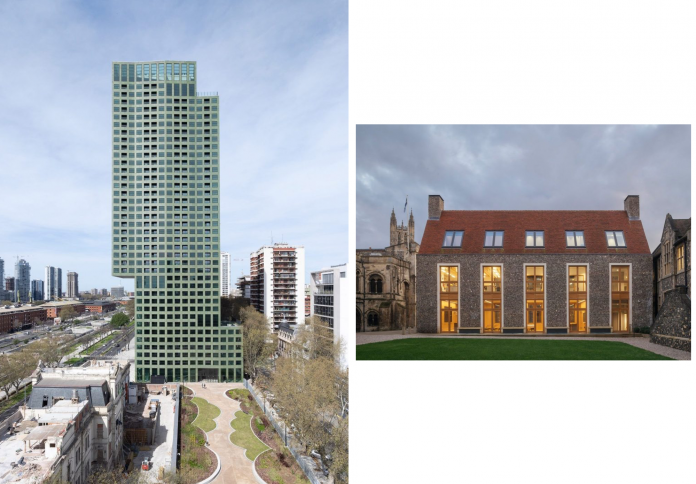For devoted followers of “The White Lotus,” the end of each season brings a new round of fevered speculation. Who will die next? Who might return? And, most importantly, where will the next trip take us? In a recent interview, actor Jason Isaacs, who masterfully portrayed the volatile patriarch of the Ratliff family in Season 3, offered a tantalizing glimpse behind the curtain. He revealed that the show’s elusive creator, Mike White, has “told him things about Season 4.” For a show so shrouded in secrecy, this is more than just a passing remark; it is a precious nugget of information. The comment is a testament to the show’s power to create characters so compelling that fans demand to know their fate, even as the series charts its own mysterious course.
The Confidant: A Glimpse into Season 4
The “White Lotus” universe is defined by its new-cast, new-location structure, but creator Mike White has a tradition of weaving a few familiar faces into the fabric of a new season. The return of Jennifer Coolidge as the tragic Tanya McQuoid was the central throughline of the first two seasons, while Natasha Rothwell and Jon Gries returned for Season 3, continuing their respective storylines. This history of continuity is what makes Jason Isaacs’s comment about Season 4 so significant. While he gave no specific details, the mere fact that White, a notoriously private and meticulous storyteller, would confide in an actor from a past season is a testament to the trust between the two.

The speculation about Season 4 has already reached a fever pitch, with fan theories pointing to a new destination that could further explore themes of power and privilege. While some have suggested a dramatic shift to a luxury African safari lodge or even a yacht, HBO’s head of drama has hinted at a return to Europe, a location that proved fertile ground in Season 2. Whatever the setting, fans are eager to see what new characters and conflicts will emerge. Isaacs’s role as a silent confidant in this process only adds to the mystique, leaving viewers to wonder if his knowledge is a simple courtesy or a subtle hint that the Ratliff family’s journey is not quite over.
Beyond the Resort: The Unlikely Spinoff
One of the most persistent questions in the aftermath of Season 3 has been the fate of the Ratliff family. Timothy Ratliff’s embezzlement scandal and the impending seizure of his family’s assets left viewers with a cliffhanger that broke with the show’s usual practice of resolving its mysteries. The ambiguous conclusion has led to calls for a spinoff series, a desire that actor Jason Isaacs is “absolutely” open to. However, he also tempered expectations, calling the possibility “unlikely” and questioning whether Mike White would “put aside the time and park ‘White Lotus,’ one of the most successful TV shows in the world,” to do a spinoff.
Isaacs’s skepticism is understandable, as the series’ strength lies in its self-contained anthology format. Yet, the fan theories on social media show a deep fascination with the Ratliffs’ unfinished story. Isaacs himself has his own ideas about his character’s fate. “I think he’s going to prison or he’s phoning his friend in the White House and getting a pardon,” he mused, offering two wildly different but equally fitting outcomes for a character defined by his privilege. Ultimately, the fact that fans are so invested in the Ratliffs’ post-resort life is a testament to the show’s masterful character-building, proving that a week-long vacation can create a lifetime of questions.
The Chameleon: A Performance of Highs and Lows
A significant part of the fascination with Timothy Ratliff lies in the brilliance of Jason Isaacs’s performance. The English actor, a long-time veteran of both film and television, took his character on a whirlwind journey over the course of the season. He began as a caricature of an “entitled finance guy,” a man whose veneer of success quickly cracked to reveal a slurring, pill-popping wreck. By the end of his arc, he had seemingly transformed into an “enlightened ascetic,” a man who found a perverse form of peace in the face of ruin. This nuanced, shape-shifting performance has not gone unnoticed.

For his work in Season 3, Isaacs earned an Emmy nomination for best supporting actor in a drama series, a significant milestone in his decades-long career. He faces off against fellow “White Lotus” castmates Walton Goggins and Sam Rockwell, along with other acclaimed actors from shows like “Severance” and “Paradise.” Despite his long list of credits and accolades, Isaacs has maintained a humble perspective on his nomination. In a recent interview, he admitted that he still feels like an “imposter” in the presence of such “extraordinary talent,” a charmingly self-deprecating comment that only adds to his appeal and underscores the high-caliber artistry that defines “The White Lotus.”
The Legacy of a Hit: The Power of ‘The White Lotus’
With 23 Primetime Emmy nominations, “The White Lotus” has cemented its place as one of the most critically acclaimed shows on television. The show’s success lies in its ability to combine sharp social satire with gripping human drama, all set against the stunning backdrop of luxurious hotels. The show’s recurring themes of money, power, sex, and death serve as a powerful critique of the one percent, exploring the deep-seated dysfunctions that lie beneath the surface of privilege.
Mike White’s genius lies in his ability to create a world so rich with detail and psychological complexity that it feels utterly real. He has a long-held fascination with power dynamics, a theme that has been present in all three seasons, and his ability to infuse his characters with unexpected quirks and motivations is what keeps audiences coming back. Jason Isaacs’s comments about his relationship with White, his Emmy nomination, and the future of the show are a testament to that powerful alchemy. They show that even as the camera moves on, the compelling stories and rich characters of “The White Lotus” continue to live on, demanding to be seen and discussed long after the credits have rolled.











